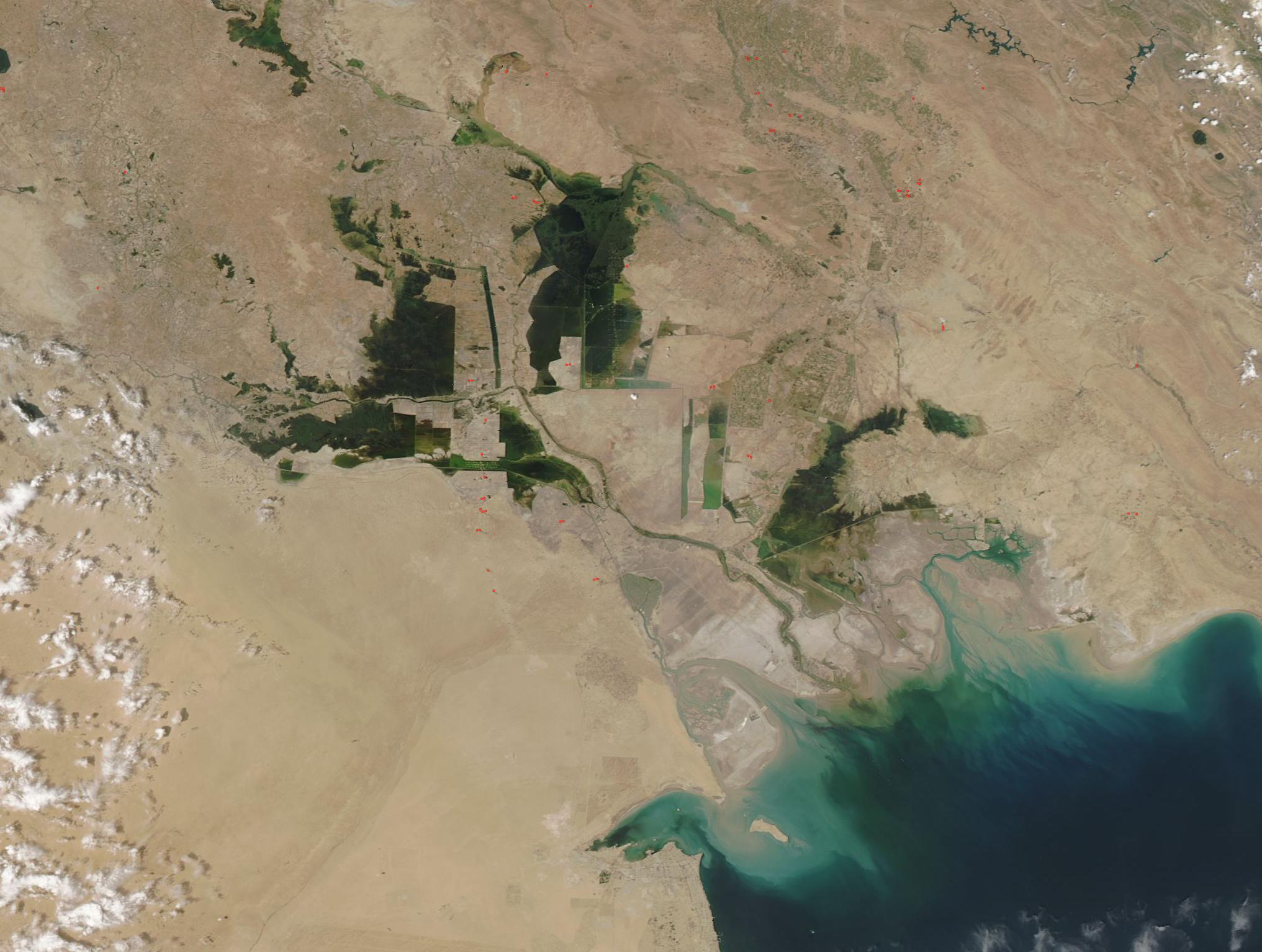Civilization
Time to Scoot: Finish Talks and Get U.S. Troops out of Iraq
The United States should conclude a new deal to withdraw from the Iraq theater, because the benefits of staying are lacking.

A deal has apparently been reached for a drawdown of most U.S. forces from Iraq. Negotiations started in January and after several pauses have now reportedly settled on a plan that pulls all but a small contingent of troops out in phases through 2026. Critics of a U.S. drawdown claim that a recent uptick in terrorist activity – notably, heightened violence in Iraq, a March attack in Moscow, and a foiled bombing at a Taylor Swift concert last month in Vienna – are reasons to keep troops in place. The Biden administration thought otherwise.
Time to get out of Iraq
Biden is right and the critics are wrong on this one. The benefits of staying in Iraq (or Syria) are no longer worth the costs of doing so. We can only hope the small contingent left behind in Iraq along with U.S. forces in Syria will come home soon too.
First, on the benefits side, U.S. troops in Iraq/Syria now matter little to controlling global reach terrorist threats. ISIS in Iraq/Syria had little to nothing to do, for instance, with terror plots in Vienna or Moscow. The Vienna plot was, like others recently, a homegrown affair – three teenagers in Austria inspired by ISIS propaganda online. The Moscow attack didn’t come from ISIS in Iraq/Syria either, but instead from ISIS-K in Tajikistan. Similar to other local terrorist groups, ties between ISIS-K and ISIS in Iraq/Syria are loose, at best. Experts don’t see a link between them in the planning and execution of the Moscow attack or other recently attempted strikes in Europe.
While ISIS-K is an emerging global terror threat, ISIS in Iraq/Syria is not. There are no benefits to U.S. security of keeping troops in Iraq and Syria. If not stopping global terror attacks, why do U.S. troops need to be there?
No need to stay
Second, Iraq and other countries in the region can handle ISIS themselves. U.S. forces, then, don’t need to be in Iraq/Syria. Since 2019, when the territorial ISIS caliphate was destroyed, Iraqi (not U.S.) forces have carried almost the entire load of combating remnants of ISIS. Moreover, despite a recent surge in ISIS activity, experts agree the group remains a cluster of isolated, decentralized cells that Iraq’s “military-technical superiority” can stop from reclaiming large swaths of territory. The sectarianism that facilitated the ISIS rise in 2014 is also far below where it was then due to good governance measures by the Iraqi government. Just as importantly (and unlike in Afghanistan), Iraq wants to take over managing ISIS in full. Others have strong interests to help in combating ISIS too. Baghdad already coordinates anti-ISIS operations with Syria, Turkey, Iran, and Russia.
Given all that, it’s hard to see the benefit of keeping U.S. troops in Iraq. The phased withdrawal will allow time for adjustments toward more regional counterterrorism coordination. If the United States ever needs to go back in (which is unlikely) or do strikes from over the horizon to manage global threats, it can, like it’s done recently in Afghanistan and northern Somalia.
Other ways to handle sabotage/mass murder
Third, when it comes to stemming global terrorist attacks, troops in terrorism combat zones yield many fewer benefits today than other non-force-based methods centered on multilateral intelligence cooperation, policing, and interdiction. ISIS-K attacks were foiled in Vienna (as well as Germany, Turkey and the United States recently) not because the United States had troops combating the group on the ground in South Asia or Iraq and Syria. Instead, success came through an expansive global web of law enforcement and intelligence agencies working across borders to prevent these attacks.
The same methods would likely have foiled the Moscow terror attack too. However, the Russian government chose to ignore the very detailed information that the United States gave it about the coming attack. It was a tragic decision with an avoidable outcome. In general, if Washington can stop terror attacks primarily by hardening targets, why not focus energy here rather than on far less effective methods like keeping troops in dangerous combat zones?
Troops in Iraq cost money
Finally, it’d be nice if keeping troops in Iraq/Syria was cost-free, but it’s not. In the last year, U.S. forces there have been shelled more than 170 times by local proxy groups. Three Americans have died, with hundreds more wounded. In recent months, proxies adopted an unofficial truce to create space for drawdown negotiations with Iraq. If the United States had backed out of those talks, attacks would likely have begun again. Dangers to U.S. soldiers aside, experts see proxy strikes and counterstrikes as a primary way the current turmoil in the Middle East could turn into a regional war. The costs of that would be astronomical for the United States.
Is an outcome like that worth it to U.S. national security? No, not given the limited benefits and substantial risks of keeping troops on the ground in Iraq and Syria. It’s time for U.S. troops to leave.
This article was originally published by RealClearDefense and made available via RealClearWire.
C. William Walldorf, Jr. is Professor of Politics and International Affairs at Wake Forest and a Visting Fellow at Defense Priorities. He is currently writing a book, "America’s Forever Wars: Why So Long, Why End Now, What Comes Next," focused on Syria, Iraq, and Afghanistan.
-

 Accountability2 days ago
Accountability2 days agoWaste of the Day: Principal Bought Lobster with School Funds
-

 Constitution2 days ago
Constitution2 days agoTrump, Canada, and the Constitutional Problem Beneath the Bridge
-

 Executive1 day ago
Executive1 day agoHow Relaxed COVID-Era Rules Fueled Minnesota’s Biggest Scam
-

 Civilization24 hours ago
Civilization24 hours agoThe End of Purple States and Competitive Districts
-

 Civilization5 days ago
Civilization5 days agoThe devil is in the details
-

 Executive4 days ago
Executive4 days agoTwo New Books Bash Covid Failures
-

 Civilization4 days ago
Civilization4 days agoThe Conundrum of President Donald J. Trump
-

 Executive4 days ago
Executive4 days agoThe Israeli Lesson Democrats Ignore at Their Peril






